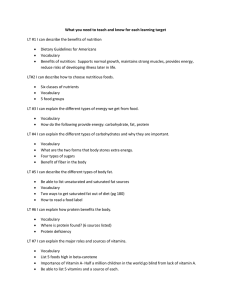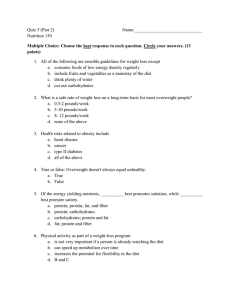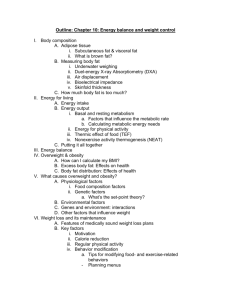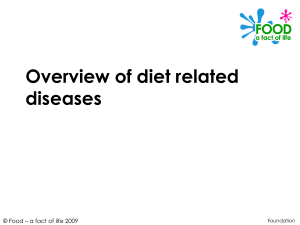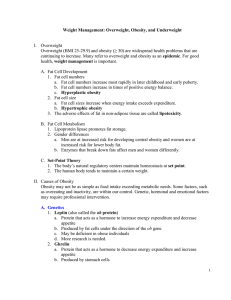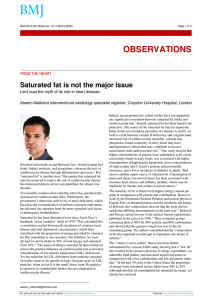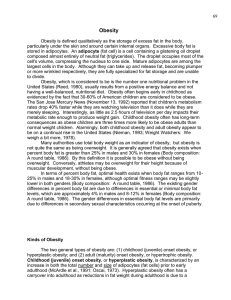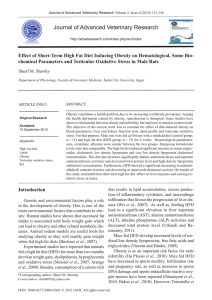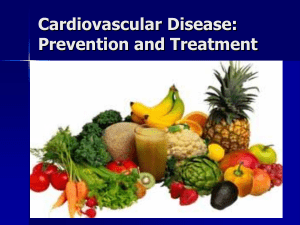FCSN 340 – Management of Food Resources
advertisement
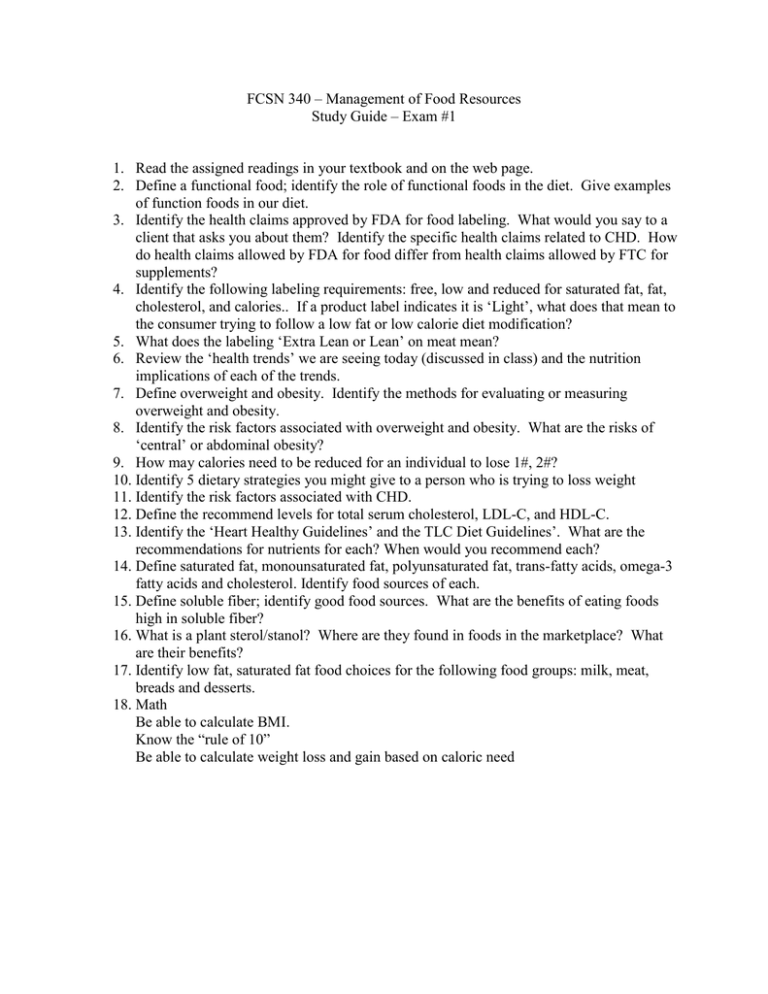
FCSN 340 – Management of Food Resources Study Guide – Exam #1 1. Read the assigned readings in your textbook and on the web page. 2. Define a functional food; identify the role of functional foods in the diet. Give examples of function foods in our diet. 3. Identify the health claims approved by FDA for food labeling. What would you say to a client that asks you about them? Identify the specific health claims related to CHD. How do health claims allowed by FDA for food differ from health claims allowed by FTC for supplements? 4. Identify the following labeling requirements: free, low and reduced for saturated fat, fat, cholesterol, and calories.. If a product label indicates it is ‘Light’, what does that mean to the consumer trying to follow a low fat or low calorie diet modification? 5. What does the labeling ‘Extra Lean or Lean’ on meat mean? 6. Review the ‘health trends’ we are seeing today (discussed in class) and the nutrition implications of each of the trends. 7. Define overweight and obesity. Identify the methods for evaluating or measuring overweight and obesity. 8. Identify the risk factors associated with overweight and obesity. What are the risks of ‘central’ or abdominal obesity? 9. How may calories need to be reduced for an individual to lose 1#, 2#? 10. Identify 5 dietary strategies you might give to a person who is trying to loss weight 11. Identify the risk factors associated with CHD. 12. Define the recommend levels for total serum cholesterol, LDL-C, and HDL-C. 13. Identify the ‘Heart Healthy Guidelines’ and the TLC Diet Guidelines’. What are the recommendations for nutrients for each? When would you recommend each? 14. Define saturated fat, monounsaturated fat, polyunsaturated fat, trans-fatty acids, omega-3 fatty acids and cholesterol. Identify food sources of each. 15. Define soluble fiber; identify good food sources. What are the benefits of eating foods high in soluble fiber? 16. What is a plant sterol/stanol? Where are they found in foods in the marketplace? What are their benefits? 17. Identify low fat, saturated fat food choices for the following food groups: milk, meat, breads and desserts. 18. Math Be able to calculate BMI. Know the “rule of 10” Be able to calculate weight loss and gain based on caloric need

